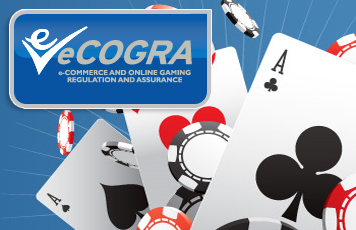YouGov and VeriSign studies throw up interesting player views
The emphasis in eCOGRA’s eGAP requirements on the safety and security of personal information has again been underlined by a YouGov study.
Smart online gambling operators will be paying a lot more attention to the security of player information on their websites following the release of the results of the study earlier this year in collaboration with VeriSign.
The research initiative showed once again that trust and the security of personal information are key demands from the online gambling public, and that punters will move to rival sites with safer systems if they feel that their trust at a particular website has been betrayed.
The resulting impact on business and reputation can be considerable.
YouGov’s NPS (Net Promoter Score) as given by respondents showed that some Internet gambling operators may have a hill to climb in achieving a better reputation. The NPS is a measurement scale that uses the answers of respondents to classify them as positive about a subject (‘promoters’); neutral (‘passive’) or negative and critical (‘detractors’)…. and the YouGov study showed that the latter group were significantly dominant when it came to online gambling.
Some 45 percent of the online gambling respondents fell into the negative category, resulting in an overall NPS rating of -27 percent – the lowest of any sector surveyed by YouGov. Although there were other contributory factors, such as customer relations weaknesses, the main criticism centred on reservations regarding the safety of personal information given to gambling operators.
The conclusion is obvious – if online players form the perception that their personal information may not be safe, it can be damaging to an online gambling operator.
In June this year YouGov and VeriSign released statistics which showed that 91 percent of Britons are concerned about identity theft in general, and more than two thirds (86 percent) would prefer using sites that actively engage them in protecting their online identity.
In addition, 79 percent of consumers would like better systems in place to protect them against identity theft, and 82 percent agreed they would take on more responsibility to protect their online identities, even if it meant an extra step on their part.
These latest findings suggest that consumers are ready for extra preventative measures that are on the market today, such as two-factor authentication.
Costs and reputation damage associated with identity theft are significant to both consumers and businesses, the survey found.
According to the Identity Fraud Steering Committee (IFSC), the cost of identity fraud to the UK economy is GBP 1.2 billion, or around GBP 25 for every adult in Britain. And credit reference agency Experian estimates that it takes an average of 467 days to discover you’re a victim of ID fraud and another 300 hours to fully reverse the damage done.
Ninety percent of consumers said that ensuring that no one else can gain access to their account to defraud them is a serious concern. In fact, 81 percent of consumers would not make a transaction on a Web site where there are any doubts as to the effectiveness of measures in place to protect their online identity.

